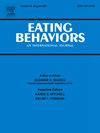面对压力和饮食失调时采取的应对策略:系统回顾
IF 2.4
3区 医学
Q2 PSYCHIATRY
引用次数: 0
摘要
饮食失调(EDs)是一组以改变饮食行为和/或出现与体重控制有关的行为为特征的疾病。一些研究报告了在面对压力时所采取的应对策略与ed之间的关系。然而,关于这一主题的最新综述是在2008年由Quiles &;Terol。对临床(神经性厌食症、神经性贪食症或暴食症)和非临床人群(12-25岁)应对策略与EDs之间关系的研究进行了系统回顾。英语和西班牙语的文章选自Web of Science和Psycinfo数据库中过去15年的文章。18篇文章最终被纳入综述。结果显示,在饮食失调或问卷得分高的人群中,消极、回避和情绪聚焦应对策略的使用频率更高;此外,研究结果还发现,在没有饮食失调或ED症状调查问卷得分较低的人群中,积极应对策略的使用率更高。本文章由计算机程序翻译,如有差异,请以英文原文为准。
Coping strategies adopted when faced with stress and eating disorders: A systematic review
Eating disorders (EDs) are a group of disorders characterized by altered eating behaviors and/or the emergence of behaviors pertaining to weight control. Some studies report a relationship between coping strategies adopted in the face of stress and EDs. However, the latest review on this topic was carried out in 2008 by Quiles & Terol. A systematic review of studies that have investigated the relationship between coping strategies and EDs in clinical (anorexia nervosa, bulimia nervosa, or binge eating disorder) and non-clinical populations, aged 12–25 years has been conducted. Articles in English and Spanish were selected from Web of Science and Psycinfo databases in the last 15 years. Eighteen articles were finally included in the review. The results show a higher use of negative, avoidant, and emotion-focused coping strategies in populations with eating disorders or with high scores on questionnaires; additionally, results uncovered a higher use of positive coping strategies in populations without eating disorders or with low scores on questionnaires measuring ED symptomatology.
求助全文
通过发布文献求助,成功后即可免费获取论文全文。
去求助
来源期刊

Eating behaviors
Multiple-
CiteScore
4.20
自引率
3.60%
发文量
65
审稿时长
60 days
期刊介绍:
Eating Behaviors is an international peer-reviewed scientific journal publishing human research on the etiology, prevention, and treatment of obesity, binge eating, and eating disorders in adults and children. Studies related to the promotion of healthy eating patterns to treat or prevent medical conditions (e.g., hypertension, diabetes mellitus, cancer) are also acceptable. Two types of manuscripts are encouraged: (1) Descriptive studies establishing functional relationships between eating behaviors and social, cognitive, environmental, attitudinal, emotional or biochemical factors; (2) Clinical outcome research evaluating the efficacy of prevention or treatment protocols.
 求助内容:
求助内容: 应助结果提醒方式:
应助结果提醒方式:


